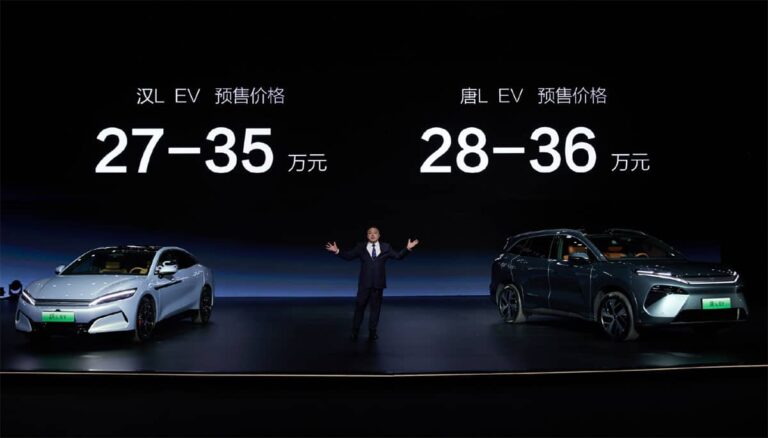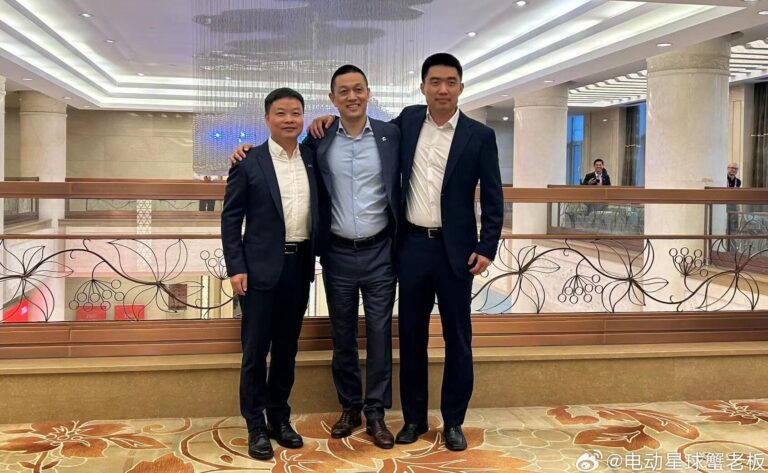- William Li spoke about the reception of Nio's share placement and said that the company's autonomous driving chip and operating system are open to the entire industry.
- He also commented on the cooperation with CATL on battery swap and BYD's 1-MW flash charging technology.
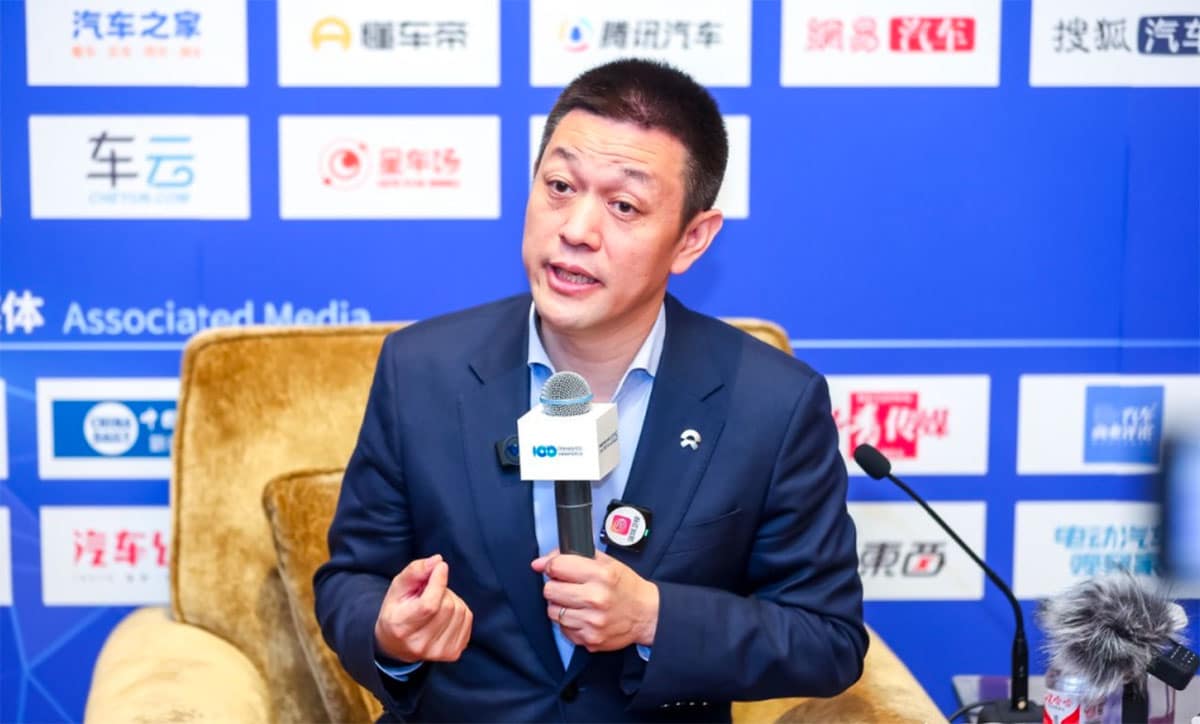
Nio (NYSE: NIO) founder, chairman and CEO William Li today spoke to local media in Beijing on the sidelines of the China EV 100 Forum, touching on a number of topics including the latest share placement and autonomous driving chip.
Nio's flash share placement in Hong Kong was completed in one day, and the reception was better than the company expected, Li said in the 30-minute interview.
The electric vehicle (EV) maker announced on March 27 a plan to issue an additional 136,800,000 class A ordinary shares, priced at HK$29.46 per share, for a total issue amount of HK$4.03 billion ($518 million).
The share placement saw many long-term investors become Nio shareholders, Li said in the interview, according to the transcript seen by CnEVPost.
"The response from the market was very good, and it was better than we expected," Li said.
Nio has increased some operating cash reserves through this fundraising, but more importantly, it is about doing its own thing well, he said.
Li also mentioned in the interview that the chip and operating system on Nio's executive flagship sedan ET9 are open to the entire industry and welcome to be used by its peers.
Some partners have already approached Nio regarding the operating system, he said.
Earlier today, Li announced that Nio's highest-priced model to date, the ET9, has begun deliveries. The model is equipped with Nio's in-house developed Shenji NX9031 autonomous driving chip and its SkyOS automotive operating system.
Nio unveiled the SkyOS in September 2023, saying it was China's first intelligent EV operating system and aimed to replace AUTOSAR (Automotive Open System Architecture).
On March 27, Li Auto (NASDAQ: LI) announced that it is open-sourcing its in-house developed automotive operating system Halo OS, in an attempt to challenge the AUTOSAR closed source operating system.
From an operational point of view, in-house developed chips and operating systems can save a lot of money, Li said, adding that Nio bought the Nvidia Orin X smart driving chips worth more than $300 million in 2024.
The capabilities of Nio's in-house developed smart driving chip are equivalent to those of the previous four chips and it is important to reduce costs through technology, Li said.
Nio will launch the ET5, ET5 Touring, ES6, and EC6 facelifts this year, which will use the Shenji autonomous driving chip, a move that will increase the gross margin by several percentage points compared to the previous use of the Nvidia chips, he said.
The in-house developed operating system can also save a lot of money, he said, adding that Nio previously had to pay a lot of licensing fees when using AUTOSAR.
He also mentioned the technical benefits of developing its own operating system.
For example, the effects and latency performance of Nio's digital rearview mirror, the stability of the ET9 after a flat tire at high speeds, and the support for L3/L4 smart driving upgrades are all based on the in-house developed operating system, which can greatly improve safety, Li said.
Nio is currently under pressure in terms of operations and needs to improve efficiency and reduce costs, but at the same time it is still quite determined to invest in research and development, he said.
Nio will continue to invest strongly in research and development, charging and battery swap networks, he said.
Li also spoke about Nio's cooperation with CATL (SHE: 300750) on the battery swap network, saying that the two will serve different customers.
Nio will mainly serve mid-to-high-end customers, while CATL's battery swap network will be aimed at models priced between RMB 100,000 yuan ($13,770) and RMB 200,000 yuan, according to Li.
The parallel operations of the two battery swap networks will give users more choices, he said.
Nio and CATL signed a strategic cooperation agreement on March 17 to jointly build the world's largest battery swap network, and Nio's sub-brand Firefly's subsequent newly developed models will use CATL's Choco-Swap technical standard.
Li was also asked in the interview how Nio's battery swap network would deal with the potential challenge posed by BYD's (HKG: 1211, OTCMKTS: BYDDY) 1-MW flash charging technology.
Nio's supercharging technology is constantly evolving, and the latest supercharging pile already supports 750 kW charging power, Li said.
"Please don't set charging against battery swap, Nio is also the company that works hardest on charging. Don't think that just because we do well in math exams, we don't do well in Chinese," he said.
Xpeng (NYSE: XPEV) chairman and CEO He Xiaopeng and Li Auto founder, chairman and CEO Li Xiang also participated in the China EV 100 Forum and delivered speeches.
On the sidelines of the event, the three men took a new group photo, their new reunion in the past few years, according to a picture shared by Li of Li Auto.
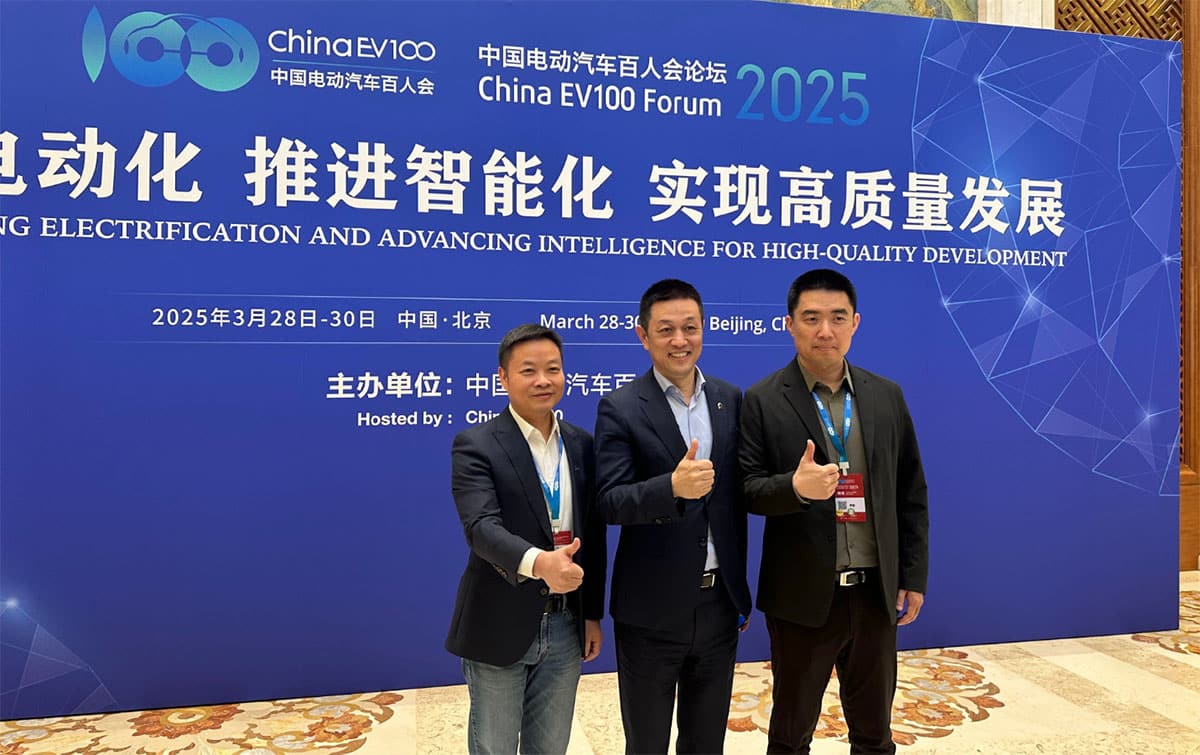
($1 = RMB 7.2634, $1 = HKD 7.7781)
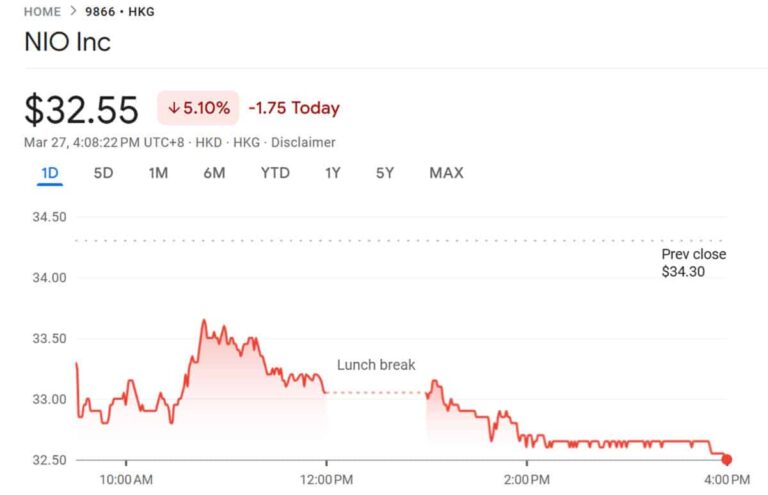
![[Video] Nio shows off ET9's safety in extreme scenarios as Chinese EV makers race for better tech](https://cdn.cnevpost.com/wp-content/uploads/2025/02/2025022102450638-768x414.jpg)
